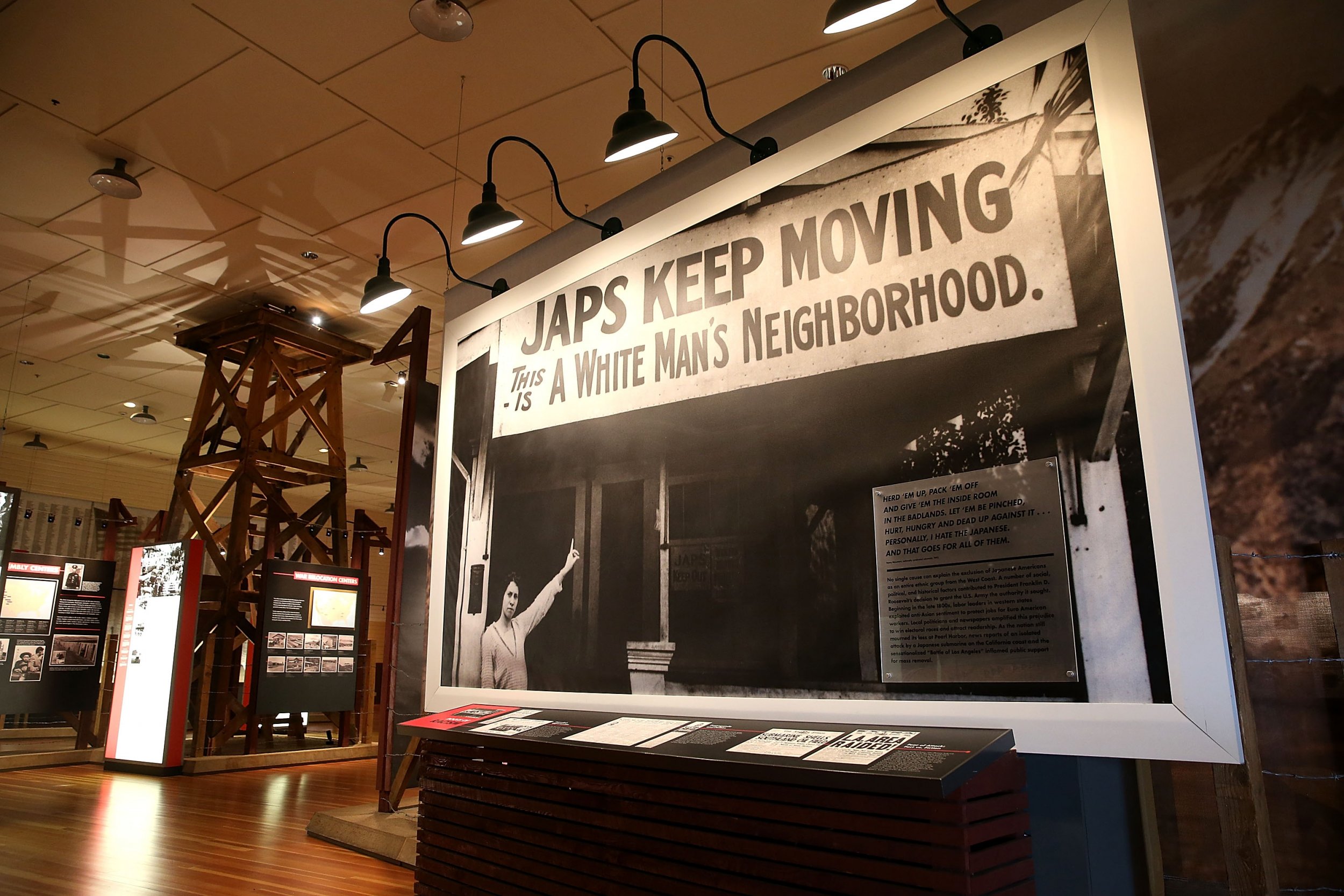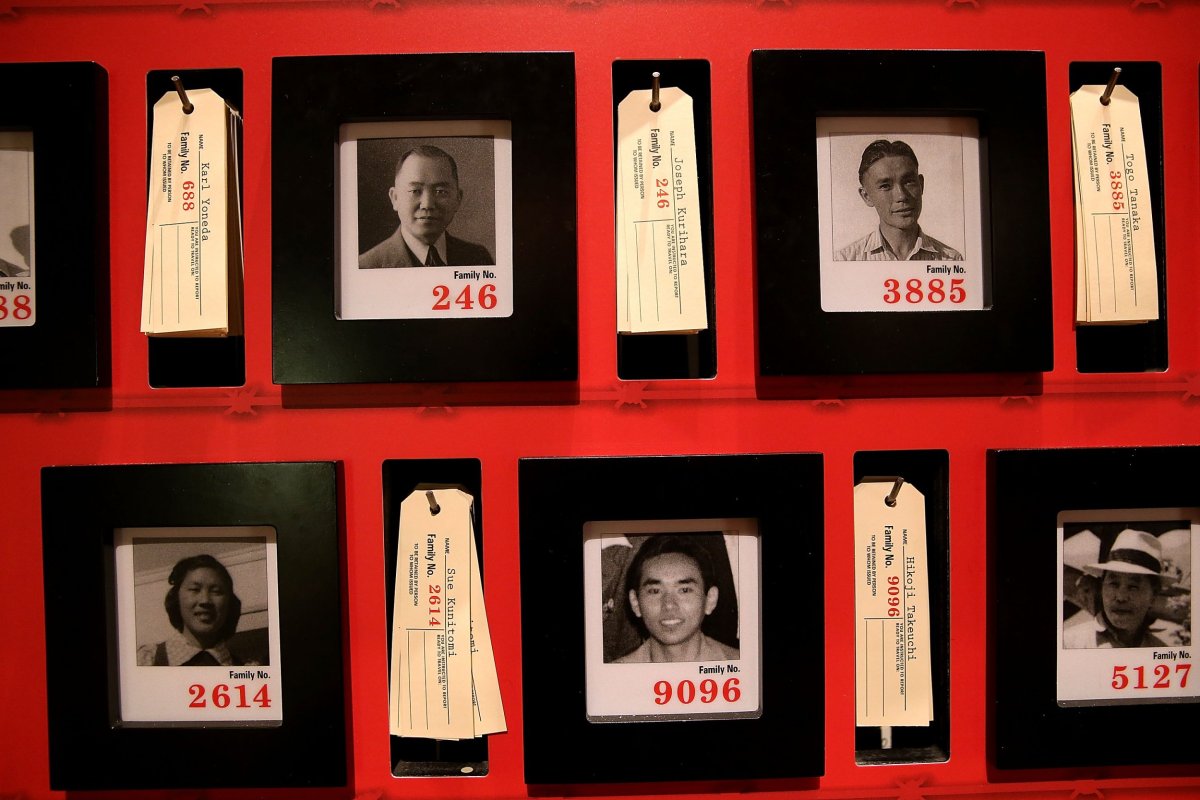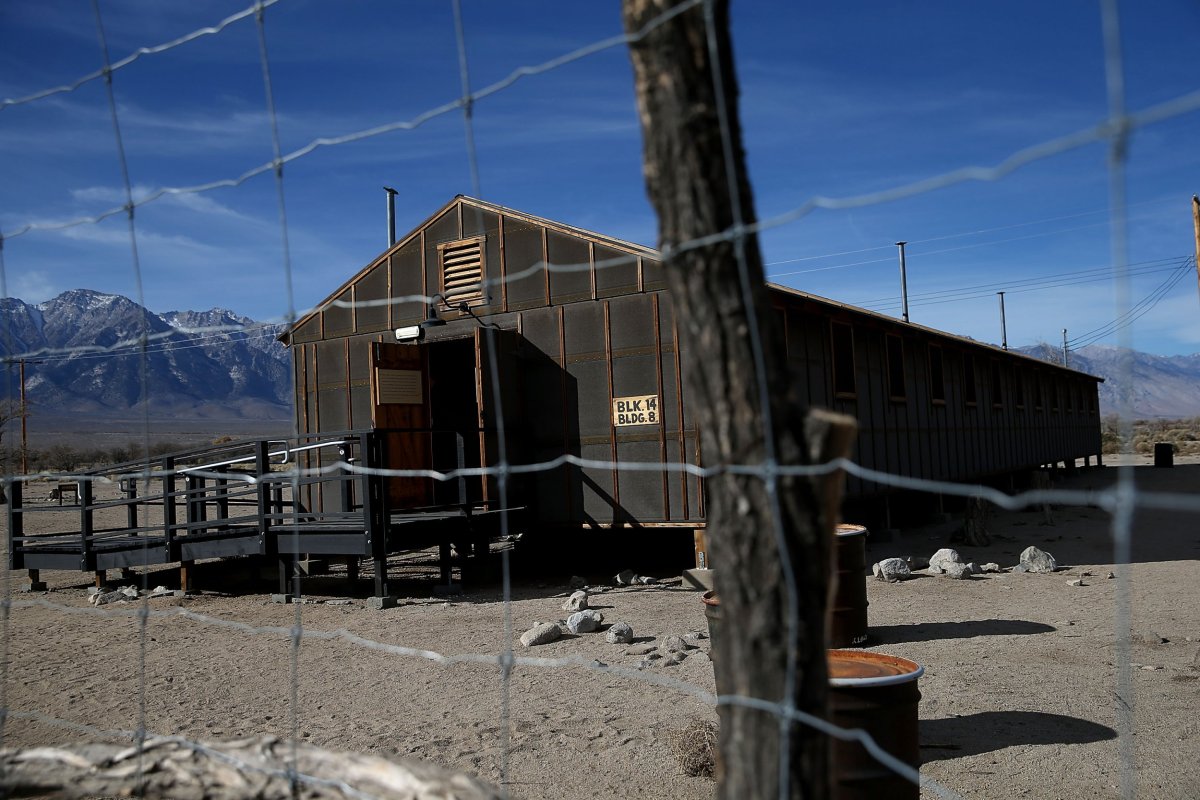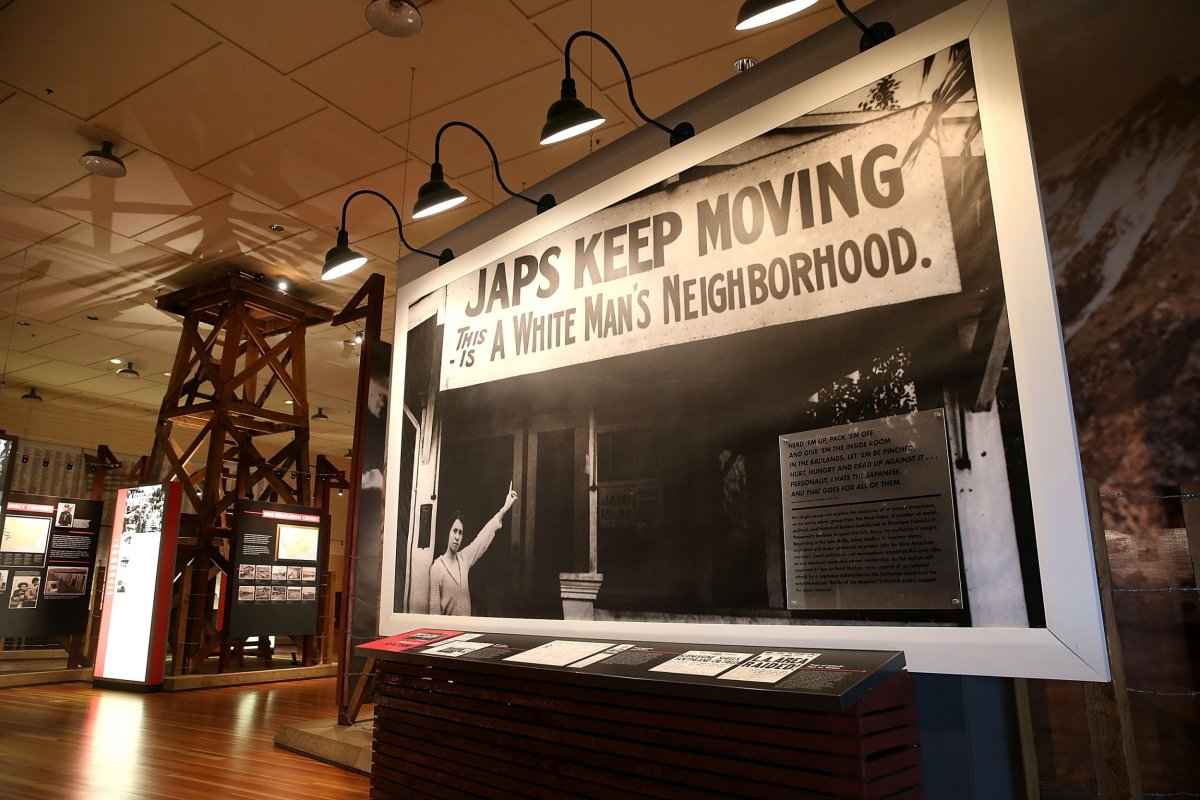
Seventy-six years after Japan attacked Pearl Harbor, the grandson of a Japanese American woman held in a concentration camp on U.S. soil during World War II is worried President Donald Trump has reinvigorated the discriminatory sentiments that saw his grandmother treated like an enemy in her own country.
Trump's Muslim ban is motivated by the "same type of prejudice" that led President Franklin D. Roosevelt to sign an executive order that forced more than 100,000 people of Japanese descent to live in concentration camps during the war, Carl Takei, a lawyer for the American Civil Liberties Union, told Newsweek.
Takei's grandmother, Bette Takei, was among those incarcerated in such camps on the West Coast of the U.S. He said she was treated like a dangerous traitor even though she was an American citizen and her husband, Kuichi "Jim" Takei, was in the U.S. Army and fighting the Nazis in Europe. Her story was not unique: Of the 120,000 forced to live in these concentration camps during the war, about 80,000 were U.S. citizens.

The government officially referred to the camps as "relocation centers," but they were barbed wire prisons staffed by armed guards—and full of people unjustifiably deprived of their freedom.
For many, the phrase "concentration camp" is associated with the Holocaust, and using it to describe what many know as "internment camps" might feel extreme. But Roosevelt and the U.S. military explicitly used the phrase when discussing the issue. Moreover, Merriam-Webster defines a concentration camp as a place "where persons (such as prisoners of war, political prisoners, or refugees) are detained or confined."
During World War II, the War Department said its "relocation camps" were a "military necessity." To avoid being accused of discrimination, Roosevelt's executive order was crafted carefully: It did not explicitly mention people of Japanese descent. But years later, a bipartisan federal commission concluded the order had been fundamentally motivated by "race prejudice, war hysteria and a failure of political leadership." It should be noted that the U.S. was also at war with Germany and Italy, but Americans of German and Italian descent weren't forced into concentration camps. It was decidedly clear what motivated the executive order.

In the present day, Trump has relied on similar arguments to justify his Muslim ban. The Trump administration has rejected use of the phrase "Muslim ban"—preferring to refer to it as a travel ban—even though that is precisely what Trump explicitly called for during his presidential campaign. In December 2015, he endorsed a "total and complete shutdown of Muslims entering the United States." Regardless of what he says now, those words came out of his mouth. What's more, in defending his call for a Muslim ban during his campaign, Trump said, "What I'm doing is no different than FDR," seemingly condoning the incarceration of Japanese Americans during World War II.
Dec 7, 2015: "Trump is calling for a total and complete shutdown of Muslims entering the United States..." pic.twitter.com/Gy80zRZfQv
— Colin Jones (@colinjones) January 28, 2017
Trump's campaign statements and tweets have repeatedly made it clear he believes Muslims are dangerous, which is precisely why his travel ban has hit a series of legal hurdles and has been revised three times. About a week ago, for example, Trump drew widespread condemnation when he retweeted an anti-Muslim video from the leader of a white nationalist group in the United Kingdom––a move British leaders, including Prime Minister Theresa May, decried.
On Monday, the Supreme Court allowed the third iteration of the travel ban, which includes countries like North Korea and Venezuela, to go into effect. These countries were not in earlier versions of the ban, and critics believe they were added only so the Trump administration could argue it wasn't targeting Muslims. The rest of the countries targeted by the ban are predominately Muslim: Iran, Libya, Syria, Yemen, Somalia and Chad.
Takei's grandparents did not live to see Trump become president, but he is certain they'd "react with horror to Trump's Muslim ban."
"My grandfather died a few years ago.... He thought the type of extreme racial prejudice he and my grandmother had faced had ended, and now we're seeing the clock turn back in many ways," Takei said. "The way in which my grandparents were treated in World War II was a product of racism, hysteria, a lack of political leadership at the highest level. Now, with the Muslim ban, it's clear this is motivated by animus against Muslims."
More than 2,400 Americans died when Pearl Harbor was attacked and America was catapulted into a war that would change the world and its role in it. World War II is viewed by many as being the most formative period for the U.S.—it's what made the country a global power. But some of the darker aspects of America's actions during the war, including the incarceration of American citizens on U.S. soil, is often overlooked. These individuals did not pose a threat to the country—they were proud Americans—but they were discriminated against nonetheless.

Nearly 3,000 Americans lost their lives on 9/11, a national tragedy that many have compared to Pearl Harbor. In the wake of that day, the U.S. invaded Afghanistan and Iraq, tortured and executed people, and incarcerated people without trials. There's no question the U.S. has made every effort, sometimes at the expense of violating its purported values, to make the country safer in the past 16 years.
Trump's travel ban does not target any of the countries where the 19 hijackers on 9/11 were from: Saudi Arabia, Egypt, United Arab Emirates and Lebanon. The president happens to do business in all of these countries.
With that said, there are many open questions about the logic and inspiration behind Trump's ban. Is it really to protect Americans, or is it in the same discriminatory, xenophobic tradition as the incarceration of Japanese Americans during World War II?
More than seven decades after Pearl Harbor, Takei hopes Americans will make an effort to remember the discrimination his grandparents faced so they can avoid condoning policies motivated by what seem to be similar sentiments in the present day. "Supporting policies that are grounded in prejudices against people based on their race or their religion is fundamentally un-American," he said. "It's something we have struggled with before, and we ought to have the historical memory not to go down that path again."
Uncommon Knowledge
Newsweek is committed to challenging conventional wisdom and finding connections in the search for common ground.
Newsweek is committed to challenging conventional wisdom and finding connections in the search for common ground.
About the writer
To read how Newsweek uses AI as a newsroom tool, Click here.








